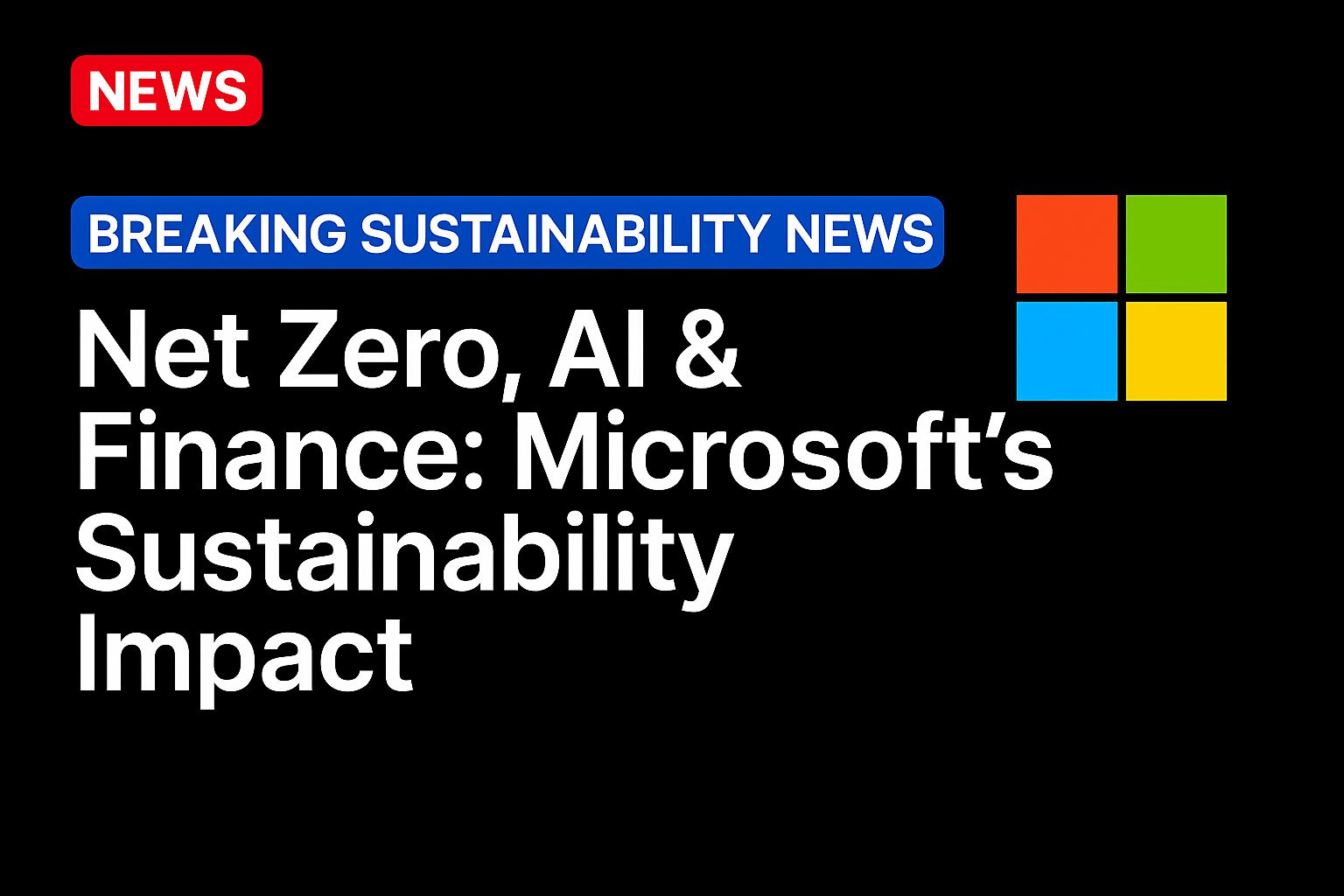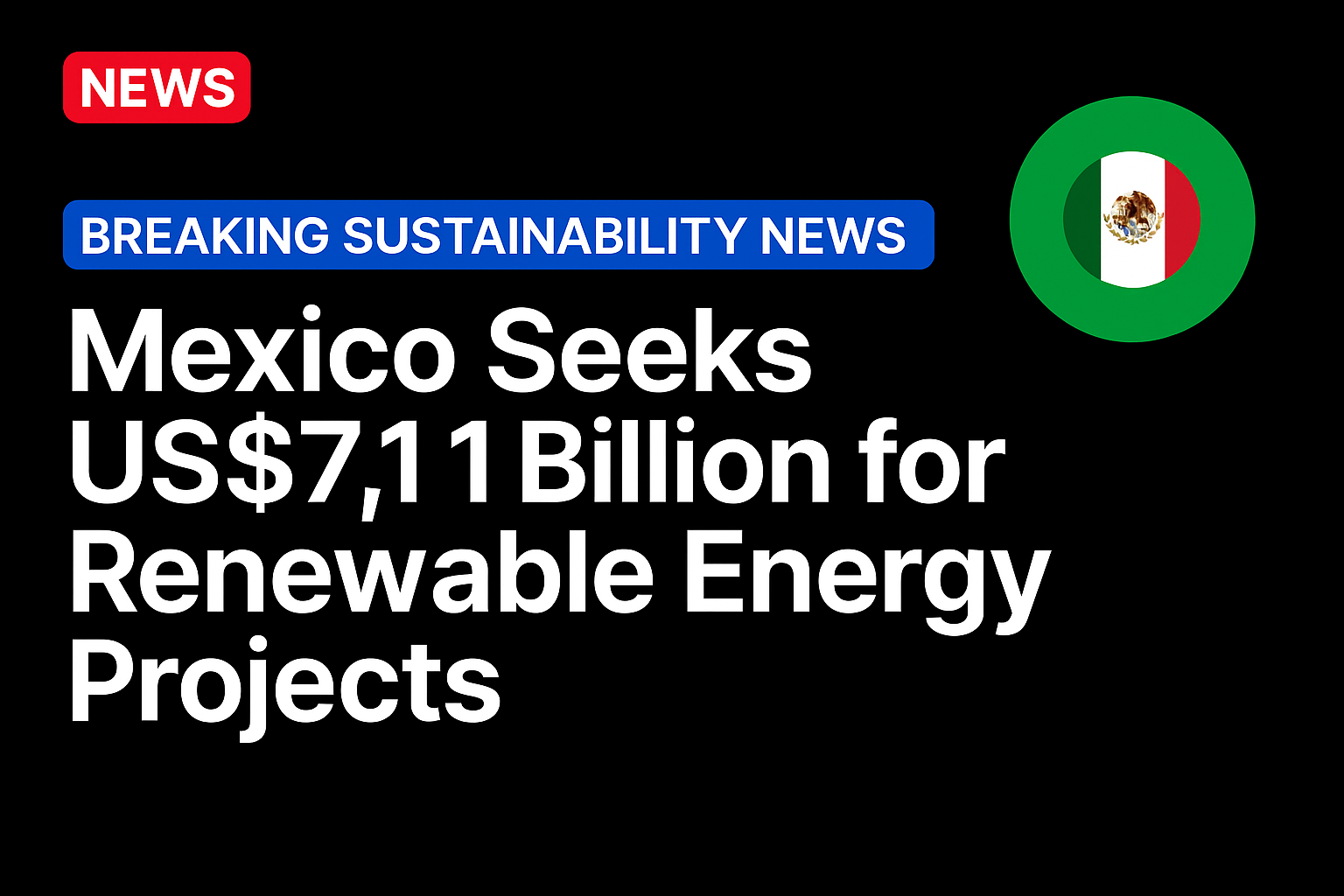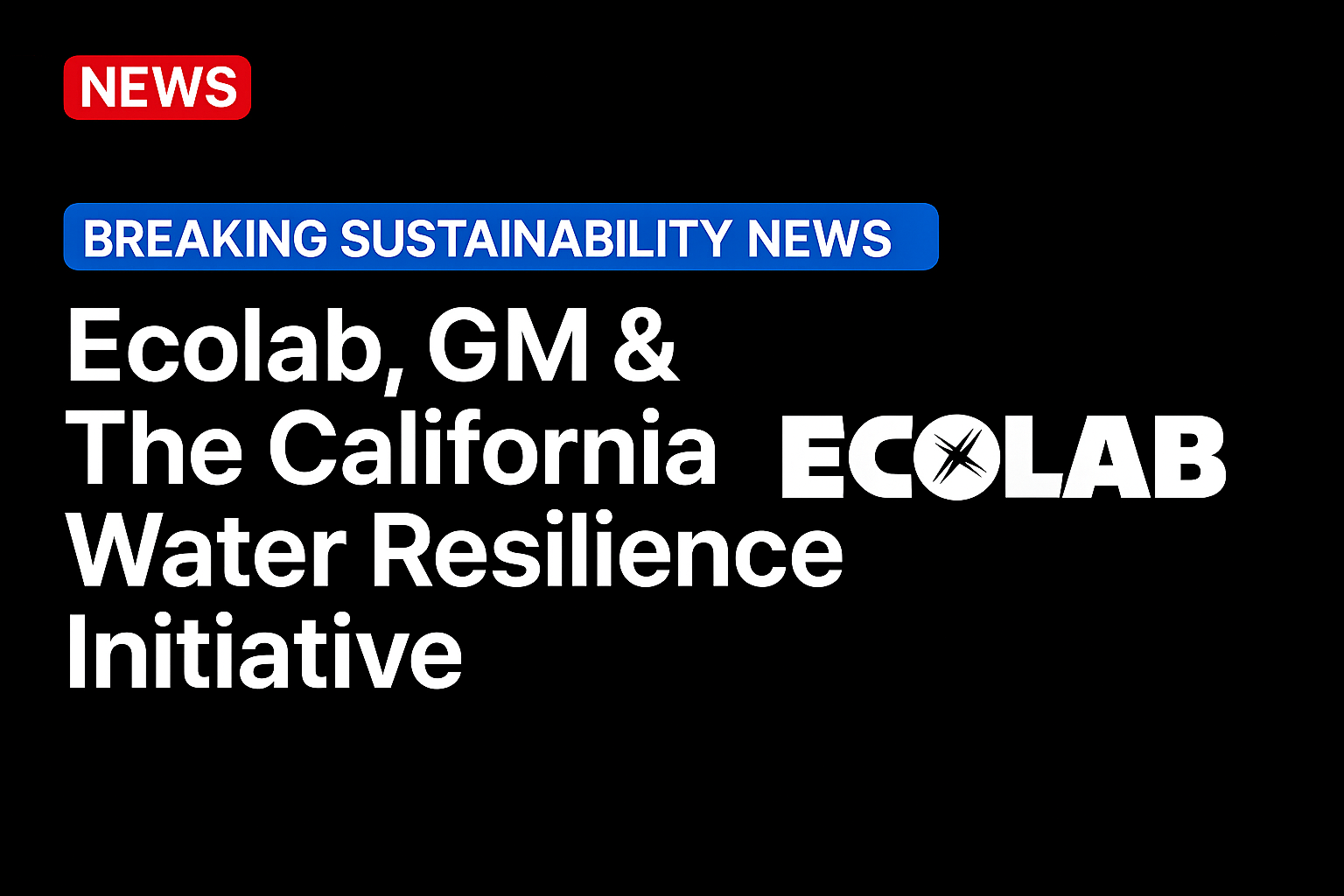Microsoft has been awarded 11th place in Sustainability Magazine’s Top 250 World’s Most Sustainable Companies 2025 for its influence & climate tech impact
Microsoft is the largest software company in the world, operating in more than 190 countries globally.
It says it is dedicated to protecting the environment and implementing sustainable technologies into its business practices.
Microsoft has been named 11th in Sustainability Magazine’s Top 250 World’s Most Sustainable Companies 2025.
The company has set itself sustainability commitments, including goals to become carbon negative, water positive and zero waste by 2030 and to protect land and ecosystems.
By 2050, the company aims to have removed from the environment all the carbon that it has emitted since it was founded in 1975.
Melanie Nakagawa, Chief Sustainability Officer at Microsoft, says: “When we set our Microsoft Sustainability commitments in 2020, we knew no single organisation could achieve a sustainable future alone.

“Progress happens when companies, investors and innovators work together to build the markets and solutions we all need.”
What is the Climate Innovation Fund?
Microsoft launched its Climate Innovation Fund (CIF) in 2020.
This is a US$1bn initiative to support the development of new technologies.
It focuses the funding based on four criteria: climate impact, underfunded markets, shared alignment and climate equity.
Its primary focus is to invest in emerging climate solutions that have early commercial traction.
Decarbonising fuels is a critical challenge in the transition to net zero as industries, including aviation and shipping, rely on high energy density liquid fuels which are difficult to replace with electricity.
Microsoft says sustainable fuel alternatives are integral to its targets, so it has made multiple investments to advance the production of sustainable fuels.

Microsoft’s CIF has invested in Stegra which is building the world’s first commercial-scale near-zero emission steel plant.
The IEA says production of steel and cement accounts for 15% of global greenhouse gas emissions.
Microsoft relies on these materials to construct its data centres, so its investment in Stegra could benefit both the company and the global market.
How AI can support Microsoft’s sustainability goals
AI is already supporting the push towards net zero energy by helping to integrate renewable energy sources into electricity grids and overcome challenges in balancing supply with demand.
It can help bring solutions such as enhancing productivity, automating repetitive tasks and pattern recognition.
Microsoft is using technologies around the world increase the reliability and efficiency of its supply chains.
Microsoft is collaborating with global organisations to develop and deploy AI-enabled tools to reduce emissions from energy, waste and agriculture sectors.
AI can help with climate risk management by analysing data such as satellite imagery, weather stations and ocean buoys to provide weather predictions.
Microsoft has also deployed AI-enabled biodiversity monitoring technologies in the Amazon rainforest which have proven to be more effective than traditional approaches.
Working towards a circular supply chain
Microsoft says that it aims to increase the availability of recycled materials in the creation of electronic products.
Its CIF has invested more than US$793m to support research and development in technologies including sorting waste and recycling of earth materials.
It supports policies that enable safe and responsible movement and processing of used electronics, which can result in lower net environmental impacts and lead towards more resilient and circular business practices.

Microsoft is working to promote circularity across the entire supply chain by educating consumers about recycling and by incentivising the return of old electronics.
The company has developed six Circular Centres which process decommissioned hardware from nearby datacentres, building a closed-loop supply chain for critical materials.
“We focus on driving environmental transformation, strengthening communities, and scaling climate solutions,” says Melanie.
“Achieving our ambitious goals requires sustained momentum and we are committed to adapting our strategies, tapping into emerging sustainability markets and deploying innovative technologies to drive even greater impact.”
Source: https://sustainabilitymag.com/




